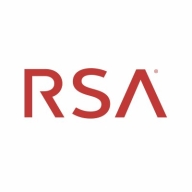

RSA enVision and Microsoft Sentinel are prominent products in the cybersecurity market. Microsoft Sentinel is perceived to have the upper hand due to its comprehensive features, which many users feel justify the additional cost.
Features: RSA enVision is known for its reliable threat detection capabilities, robust support, and cost-effectiveness. Microsoft Sentinel stands out for its extensive integration options, intelligent automation, and broader feature set favored by users.
Room for Improvement: RSA enVision needs improved scalability, a more modern architecture, and enhanced user interface. Microsoft Sentinel faces issues with complex configuration requirements, occasional slow performance, and needs improved user documentation.
Ease of Deployment and Customer Service: RSA enVision offers a straightforward deployment process with responsive customer support. Microsoft Sentinel provides numerous deployment options, which can be complex but are balanced by strong customer service. Users find enVision easier to deploy, but Sentinel’s support compensates for its complexity.
Pricing and ROI: RSA enVision is recognized for its cost-effectiveness and solid ROI. Microsoft Sentinel, though more expensive, justifies its price with advanced functionalities and higher ROI. Sentinel’s price is seen as reasonable for the value offered.

Microsoft Sentinel is a scalable, cloud-native, security information event management (SIEM) and security orchestration automated response (SOAR) solution that lets you see and stop threats before they cause harm. Microsoft Sentinel delivers intelligent security analytics and threat intelligence across the enterprise, providing a single solution for alert detection, threat visibility, proactive hunting, and threat response. Eliminate security infrastructure setup and maintenance, and elastically scale to meet your security needs—while reducing IT costs. With Microsoft Sentinel, you can:
- Collect data at cloud scale—across all users, devices, applications, and infrastructure, both on-premises and in multiple clouds
- Detect previously uncovered threats and minimize false positives using analytics and unparalleled threat intelligence from Microsoft
- Investigate threats with AI and hunt suspicious activities at scale, tapping into decades of cybersecurity work at Microsoft
- Respond to incidents rapidly with built-in orchestration and automation of common tasks
To learn more about our solution, ask questions, and share feedback, join our Microsoft Security, Compliance and Identity Community.
RSA enVision is a comprehensive security information and event management (SIEM) solution offered by RSA, a leading provider of cybersecurity solutions. It enables organizations to collect, analyze, and manage security event data from various sources, providing real-time visibility into their IT infrastructure. With RSA enVision, organizations can proactively detect and respond to security incidents, ensuring the protection of critical assets and sensitive data.
The solution offers a wide range of features, including log management, event correlation, threat intelligence, and compliance reporting. One of the key strengths of RSA enVision is its ability to collect and normalize data from diverse sources, such as network devices, servers, applications, and databases. This allows organizations to gain a holistic view of their security posture and identify potential threats or vulnerabilities.
The event correlation capabilities of RSA enVision enable the detection of complex attack patterns and the identification of potential security incidents. By analyzing events in real-time and correlating them with historical data, the solution can provide actionable insights and alerts to security teams, enabling them to respond quickly and effectively. RSA enVision also offers advanced threat intelligence capabilities, leveraging machine learning and behavioral analytics to identify anomalous activities and potential indicators of compromise. This helps organizations stay ahead of emerging threats and proactively mitigate risks.
RSA enVision provides comprehensive compliance reporting capabilities, helping organizations meet regulatory requirements and demonstrate adherence to industry standards. The solution offers pre-built compliance reports for various regulations, such as PCI DSS, HIPAA, and GDPR, simplifying the audit process and reducing compliance-related costs. In summary, RSA enVision is a powerful SIEM solution that enables organizations to effectively manage their security events, detect and respond to threats, and meet compliance requirements.
With its robust features and capabilities, it provides organizations with the necessary tools to enhance their cybersecurity posture and protect their critical assets.
We monitor all Security Information and Event Management (SIEM) reviews to prevent fraudulent reviews and keep review quality high. We do not post reviews by company employees or direct competitors. We validate each review for authenticity via cross-reference with LinkedIn, and personal follow-up with the reviewer when necessary.